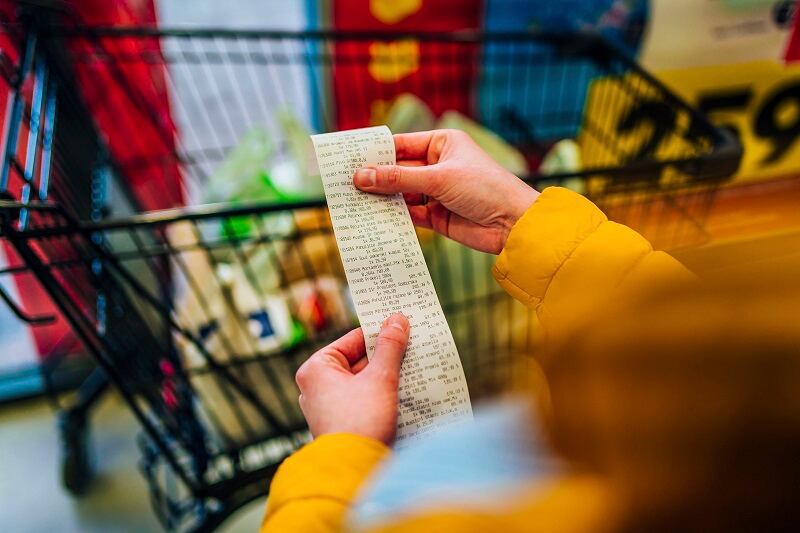For the second month in a row, The Conference Board reported yesterday that the Consumer Confidence Index in June fell 4.5 points to 98.7 from 103.2 in May – the lowest it has been since it hit 95.2 in February 2021.
And while consumers’ assessment of the current business and labor market conditions, as measured by the Present Situation Index, held mostly steady – dipping only 0.3 to 147.1 – from the previous month, their outlook for income, business and labor market conditions, measured by the Expectations Index, plummeted to 66.4 from 73.7, the lowest level since March 2013, The Conference Board reported.
“Consumers’ grimmer outlook was driven by increasing concerns about inflation, in particular rising gas and food prices,” Senior Director of Economic Indicators at The Conference Board Lynn Franco said in a statement.
The price for food consumed at home has soared 11.9% in the past year, according to the most recent Consumer Price Index released last month by the Bureau of Labor Statistics. This is far higher than the overall price index, which is still up a staggering 8.6% from a year ago.
The Conference Board’s assessment that higher food and gas prices are shaking consumers’ confidence aligns with survey results released last Friday by the Consumer Brands Association.
The survey, conducted by CBA and Ipsos, found 72% of consumers said higher grocery prices have very or somewhat significantly impacted their household budgets.
To offset the increased cost of food, CBA found 52% of Americans are cutting back on driving to save on gas, 50% are cutting back on entertainment – including eating out, and 35% are holding off on grocery purchases.
This “speaks to the essential nature of the CPG industry’s products and the responsibility the industry feels to keep products as affordable as possible,” CBA said in a statement.
The Conference Board also found that purchase intent for big ticket items, like cars, homes and major appliances, is holding relatively steady, but, it notes “intentions have cooled since the start of the year and this trend is likely to continue as the Fed aggressively raises interest rates to tame inflation.”
This month the Fed made an unexpected decision to raise interest rates 75 basis points – far more than the already high 50 that was expected and the 25 that was previously floated.
Taken together, these factors suggest notable headwinds going forward and rising risk of a recession, which should put even recession-resistant brands, such as packaged food, on alert.
Blame shifts to government policies, supply chain challenges
While weary of rising prices, most consumers have been understanding of company decisions and have not altered their purchase behavior during the pandemic, but as the nation moves out of the crisis phase of the coronavirus outbreak and adopts a more endemic attitude, their views are changing.
According to the CBA poll, which was conducted June 17-20 and included a nationally representative sample of 1,000 adults, far fewer consumers continue to blame the pandemic for grocery inflation and instead are pointing fingers at supply chain costs and constraints and President Biden’s policies. In June, only 19.4% of consumers pinned rising food prices on the pandemic – down from 29.6% in February.
“Nearly all of that change was picked up by supply chain costs and constraints, which jumped six points [to 26.9% in June from 20.8% in February], and President Biden’s policies, which moved into the top spot on a three-point increase” to 29.4% from 26.7%, CBA reports.
It also found that more consumers now believe that if the problems causing supply chain pressures improve, so too would inflation (up to 50% in June from 47% in December 2021).
The Consumer Brands Association notes that it has advocated for supply chain solutions throughout the pandemic, including working with the Biden Administration to ease the truck driver shortage, and recruit more workers to the CPG industry among other efforts.




